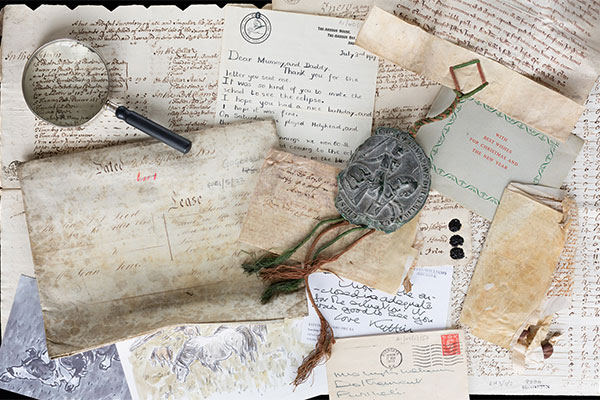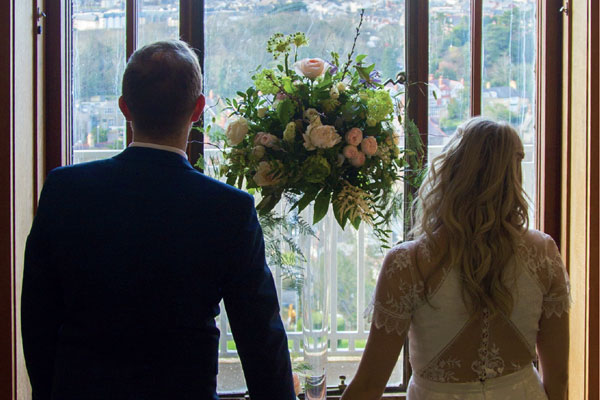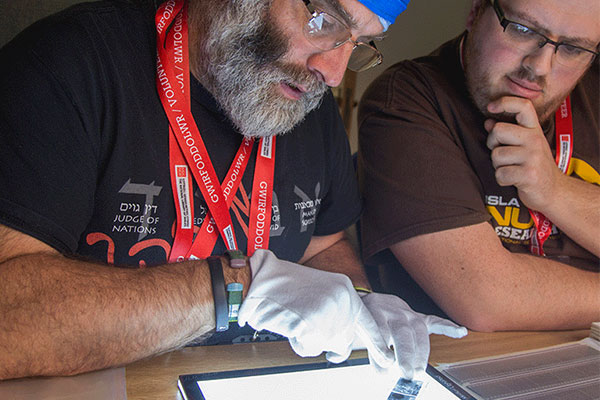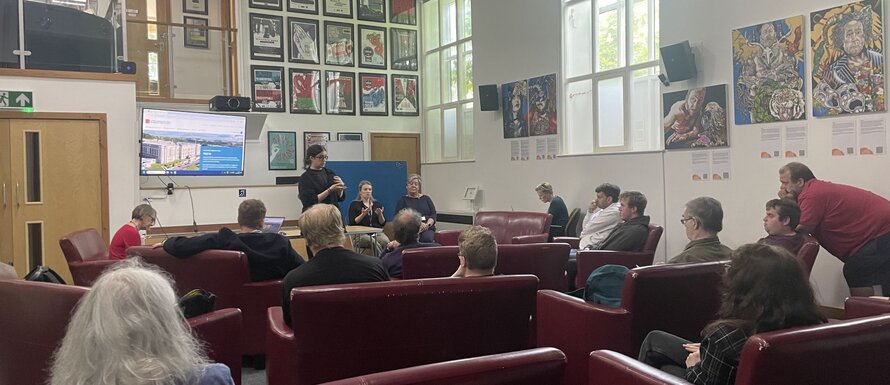In September 2023 the Screen and Sound Archive started on a year-long project supported by the BFI and National Lottery, ‘Cymru Anabl’, in partnership with Disability Arts Cymru, Hijinx Theatre company and TAPE: Community Music and Film.
This screen heritage project explores the representation of disabled and Deaf filmmakers in the archive, as well as the accessibility of the material. The project will be setting a foundation for longer-term work at the archive. Read a blog about the start of the project here.
Iola Baines, the Screen and Sound Archive’s Moving Image Curator, and I are leading and working o nthe project. We recently hosted four workshops across Wales in order to host conversations with disabled people about the project’s themes, as well as with others working in fields relating to film and video.
Planning the workshops
We needed to plan the workshops in a way that was considerate of the people we were hoping to reach, but also with consideration of our own skills.
Although both us are experience at presenting information and speaking publicly, hosting an interactive workshop was completely new to us, and so we had to make sure we were thoroughly prepared.
Being prepared meant that we were able to follow a detailed structure and plan in order to keep the workshop to subject and time. Even more importantly, this thorough preparationg allowed us to facilitate the workshops in an accessible and flexible way, ensuring that we were prepared for, and able to repond to, the specific needs of any participant.
It was essential that made the effort to host workshops across Wales, while at the same time being mindful of our capacity and time. After much discussion, we decided therefore to host four workshops: in Aberystwyth, Old Colwyn, Carmarthen and Cardiff.
There were to main fields in which we possibly failed to adequately prepare. We should have promoted the session much earlier, and more directly, instead of relying on social media and word of mouth. We were also disappointed to have only secured BSL interpretation for two of the four sessions. From this we learned again the importance of planning far in advance, and indeed of considering the availability of interpreters when planning event dates.
One thing on the horizon that will help us partially adress these failures is that we will also be hosting and online workshops. We were aware from the start that it would be important to offer a means to participate for anyone who wouldn’t, for whatever reason, be able to make it to our physical sessions.
Now, the online session will also be a way for us to reach those who weren’t aware of our previous workshpos, and better yet it gives us the opportunity to collaborate with members of the Deaf community in order to ensure that the session is accessible and considerate of the community’s needs.
The online workshop then will be organised very soon and will take place at some point over the coming months.
Hosting the workshops
Generally, I would lead the workshops, with Iola contributing extensively by sharing the archive’s history and presenting a number of clips from its collections.
After a brief introduction, the first part of the session we would broadly discuss archive film, asking the participants for their impressions and expriences. It was interesting hearing directly about how a number of participants defined or imagined archive film, and their surprise as they learned how broad a field it is.
In the second part of the session, we would discuss that important of diverse representation and inclusive accessibility. The conversation would often take us being the archive, and included discussion about all sorts of public spaces and different media.
In the lats part of the session, there was a chance for us to imagine what the film archive of the future would be liked, thinking without any boundaries or financial restrictions. This exercise was a producive way to close the session positively, hopefully, and creatively
Around 30 participants took part in the workshops altogether, with the final session in Old Colwyn being the busiest, as we had the chance to meet the regular attendees of the TAPE Media Club.
The workshops had a different feel to them depending on who had mainly attended – for example, the conversation would be different when a number of attendees had experience of working within an archive, compared to those with experience of work in the production sector.
Some of the main themes and messages that came from the workshops were:
- That strong systems which prioritise the user are essential to facilitating accessibility
- That it’s important, when working to improve diversity and accessbility in any organisation, that leadership supports the staff to undertake the work
- That understanding is important as well as intention when working in the field of inclusion
- Supporting staff and ensuring adequate resources contributes to better accessibility
What next?
One of the project outputs will be a document that outlines our priorities as an archive. This document will be based on the conversations that we had during these workshops (as well as the forthcoming online workshop).
This document will include a deeper reflection on and analysis of the conversations we had, and will place them in a productive and practical context that looks to the future.
This project will formally come to an end in September, and before then we’ll publish more blogs about the project activity, as well as more about some of the relevant films in our collections.
Of course, the end of the project doesn’t mean the end of the conversation. Beyond the specific borders of the project, our new connections, espeically through out partners, will mean that we have a way to continue to have more specific conversations about the needs and hopes of the archive’s users and potential users.
Category: Article





